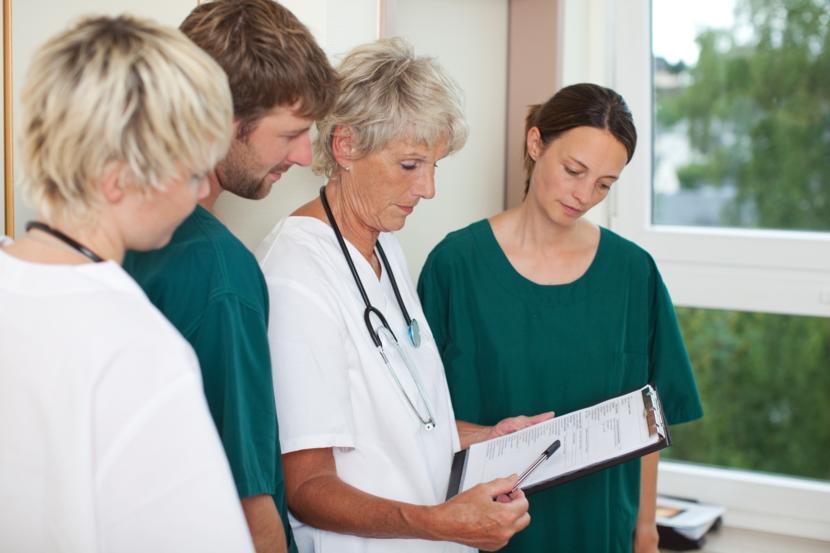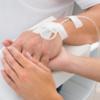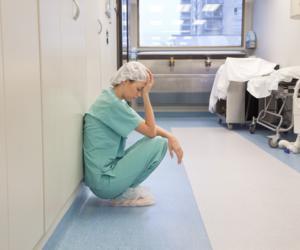Averting Mass Shootings: What Can Nurses Do?

The fear that mass shooting bring to people is crippling. Some fear it even more than they do natural disasters, and citizens are afraid that at any moment some psycho gunman is going to show up and take their lives away. After all these recent tragedies, no one can really blame these people. As everyone can agree, mass shootings are uncalled for and are pure acts of evil.
Some say that the poor gun control laws in a country triggered the crimes while others blamed the poor psychological health of mass murderers. Nevertheless, the issue is indeed a controversial one that needs a coordinated response from all sectors of the government and its citizens. Truth is, this can happen in any country. Thus, everyone should contribute to ending this nightmare to the best of their ability since there is no sure way to address the problem. All healthcare professionals, doctors, and nurses’ actions should also be in keeping with this ideal.
Mass Shooting Incidents in the US
Recent incidents of mass violence have once again put the US in the global spotlight. Just this 1st of October, 59 people were mercilessly killed and 500 others were injured in what was dubbed as the ‘worst modern mass shooting’ incident in the country’s history. The incident took place in a Las Vegas’ music festival with over 200,000 attendees. It was supposed to be a night of music and partying, but horridly, the place ended up becoming some concertgoers’ deathbed.
The lone gunman in the Las Vegas incident was a grandfather (64 years old) who settled in a retirement community. However, this man was also a millionaire who amassed his wealth by playing in casinos. There seems to be nothing to link this man to the criminal he was when looking at his normal life. But looking deeper, his father did some unlawful acts too: bank robbery. The ISIS terrorist group also claimed to have converted him to Islam several months ago, but there was no evidence found to clearly link him to the group.
Almost a month later, another deranged gunman killed 26 people and wounded 20 others in a Texas church. It was a regular mass on a Sunday when a 26-year-old man opened fire inside and outside the church. A local resident went after him, eventually killing the gunman, but the resident could only do so much. Lives were still lost in a place where churchgoers were supposed to celebrate them.
The Texas gunman was a young man who was in the US air force, but according to reports, he was discharged from duty for assaulting his wife and child. This time, there’s a clearer identity for the gunman. He obviously was not in the right mind due to his personal issues, jowever, the real motive of the gunman is yet to be revealed.
These gun shooting incidents are indeed terrifying, but gun ownership is still legal in the United States and will seem to be the case still in the next coming years. But the question is, what can be done to lessen, if not resolve, such happenings? While there is no sure way to tell who is capable of such horrible acts, people can still contribute individually by raising awareness to this issue, building a more accepting and responsible community.
What do mass murderers have in mind?
To no question, a mass murderer’s mental health condition or neurological makeup is far from normal. The reasons and the factors affecting their psychology vary from person to person. However, several studies who conducted a psychological autopsy of the apprehended gunmen, or those who shot themselves dead, show similar psychological themes:
- First, they hold grudge, and oftentimes, these murderers feel alienated or persecuted. They develop and nurture these feelings, causing them to think that others have it all in life whereas they are suffering.
- Second, they have anger management issues and resort to making violent threats as a form of revenge.
- Third, they have no regard for their own lives. So, as long as they successfully draw the attention of people, in a violent manner, they will not have second thoughts of killing themselves.
- Finally, there may be a genetic component at work. These people are usually diagnosed as psychopaths who could murder others in an instant despite having no criminal record. As a genetic component, other family members may have shown similar tendencies.
It is difficult to be sorry for these ‘cold-blooded criminals’, as people call them. But if one is to trace where this twisted psychology is rooted, understanding them may not be too difficult. Their penchant for violence surely started to manifest early on. Factors like rejection, bullying, and poor parental relationship and guidance could have triggered this tendency. If there is anything anyone can do, it will be to show them acceptance and give guidance in a form of dialogue. Everyone is capable of having an educated talk.
Nurse’s Role: What can Health Care Providers do?
While concerned citizens and police officers are always the first to respond to any mass shooting incident, hospitals with all its personnel are the first to truly address the victim’s needs. In her article, Jennifer Mensik (2017), condensed the two imperative principles nurses adhere to as cited in their code of ethics.
The first principle highlighted is that all healthcare systems should be fully functioning during any mass casualty event to save as many lives possible. The second principle emphasized that medical responses should be comprehensive and coordinated by the community and the region. To put it simply, they should all be prepared anytime, even on a short notice.
Well, of course, all these do not really prevent a mass shooting from happening, but what can avert it is their engagement in community dialogues about preventing the dreaded incident. Mensik (2017) suggested an evidence-based practice, which is simply the use of all expertise of a nurse. Nurses should not only possess a great clinical expertise; they should also have an ethical understanding of the community around them. This is not only a virtuous response from a concerned individual but is, in fact, part of the nurse’s code of ethics.
One thing that can be done is to educate people on how to identify warning signs of the emotionally disturbed individuals in the community, be it in schools or local clinics, to provide intervention. This may be challenging because, humans as they are, they have to retain political correctness. However, if the intention is genuine, then there is no reason to hold back.
Bluntly saying, nurses may not be able to stop the next attempt at mass killing, however, if they are just going to wait for governments to figure out a prevention method, then they will have to become passive professional onlookers. They are in the best position to make this move as nurses are informed individuals who can educate the community through training.
Final Thoughts
Medical practitioners, nurses, and other healthcare personnel are part of a community of trained professionals whose gifts and ability go beyond their clinical expertise. They can greatly contribute to this disaster preparedness when emergency situations prevail. However, it is just as necessary to advocate compassion for the safety of the entire community. While the real problem is yet to be addressed, all concerned individuals, professional or not, need to take decisive steps to help with the prevention of mass murders.






